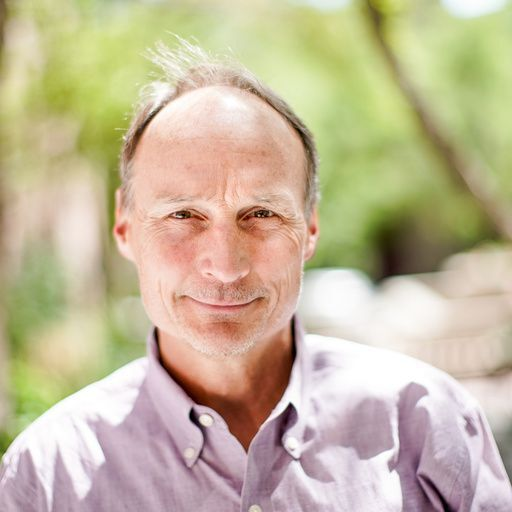SALT LAKE CITY — The U.S. Supreme Court has rejected at least two requests from churches to block enforcement of state coronavirus restrictions on attendance at religious services, the latest being in a Nevada case last Friday.
On the same day, Utah Sen. Mike Lee led nine other Republican senators in a letter asking President Donald Trump to stop states and cities from “discriminating” against people seeking to practice their religion.
“State and local governments are discriminating against Americans seeking to exercise their First Amendment right to practice their religion. There is more the federal government can do to stop this discrimination,” Lee said.
The letter asks Trump to take measures to ensure churches, houses of worship and religious institutions are able to reopen under appropriate Centers for Disease Control and Prevention guidelines. The senators also want the president to support proposals that place restrictions on new COVID-19 relief funding for states that prevent churches from reopening.
“Such executive action would send the nation and government leaders a clear and unequivocal message that religious liberty matters, and that no state or locality can unilaterally strip away protected constitutional rights,” according to the letter.
And, the senators say, a pandemic is no exception.
Calvary Chapel Dayton Valley in Dayton, Nevada, argued that the state treated houses of worship less favorably than it did casinos, restaurants and amusement parks. Those businesses have been limited to 50% of their fire code capacities, while houses of worship have been subject to a flat 50-person limit, the New York Times reported.
The Supreme Court, with Chief Justice John Roberts joining the four liberal justices, turned down the church’s petition 5-4, but gave no reasons, which is typical in emergency applications for a hearing.
In a dissenting opinion, Justice Samuel A. Alito Jr. wrote that the Constitution guarantees the free exercise of religion.
“It says nothing about the freedom to play craps or blackjack, to feed tokens into a slot machine or to engage in any other game of chance. But the governor of Nevada apparently has different priorities,” he wrote.
Alito wrote that a public health emergency does not give governors and other public officials carte blanche to disregard the Constitution for as long as the medical problem persists.
The court also ruled 5-4 in May in a case brought by South Bay United Pentecostal Church in Chula Vista, California, with Roberts again joining the liberal justices.
“Although California’s guidelines place restrictions on places of worship, those restrictions appear consistent with the free exercise clause of the First Amendment,” Roberts wrote in the majority opinion.
“Similar or more severe restrictions apply to comparable secular gatherings, including lectures, concerts, movie showings, spectator sports and theatrical performances, where large groups of people gather in close proximity for extended periods of time,” he wrote. “And the order exempts or treats more leniently only dissimilar activities, such as operating grocery stores, banks and laundromats, in which people neither congregate in large groups nor remain in close proximity for extended periods.”
Kansas, Kentucky, Maine, Michigan, New Jersey and New York are among states that have placed restrictions on religious services by limiting mass gatherings to curb the spread of COVID-19. Some of those decision have led to lawsuits, including state court decisions that have upheld the limitations.
The Church of Jesus Christ of Latter-day Saints, Utah’s dominant religion, canceled all meetings and activities worldwide in March, the same day that Gov. Gary Herbert asked churches, among others, to limit gathering to fewer than 100 people.
In May, the church allowed congregations to hold shortened Sunday worship services with up to 99 people, based on local government guidelines. Decisions on where and when to resume church meetings were left to area presidencies with guidance from church headquarters. Some stakes started holding services in June, while others have yet to meet in person.
Last month, Elder David A. Bednar, a member of the church’s Quorum of the Twelve Apostles, said that when governments swiftly banned religious gatherings as COVID-19 advanced, they dangerously breached boundaries protecting the free exercise of religion.
“We cannot deny and we should not forget the speed and intensity with which government power was used to shut down fundamental aspects of religious exercise,” he said at Brigham Young University’s Religious Freedom Annual Review.
“These decisions and regulations were unprecedented,” Elder Bednar said. “For nearly two months, Americans and many others throughout the free world learned firsthand what it means for government to directly prohibit the free exercise of religion.”
In the letter, the senators remind Trump that in late May he urged governors to allow churches across the country to reopen.
“However, this call to action seems to have fallen on deaf ears in many of our cities and states,” the letter says. “Our nation needs its houses of worship now more than ever.”
In addition to Lee, Sens. Mike Braun, R-Ind., Josh Hawley, R-Mo., Steve Daines. R-Mont., Kelly Loeffler, R-Ga., Thom Tillis, R-N.C., Cindy Hyde-Smith, R-Miss., Roger Wicker, R-Miss., James Lankford, R-Okla., and Tom Cotton, R-Ark., signed the letter.


 alt=Dennis Romboy
alt=Dennis Romboy